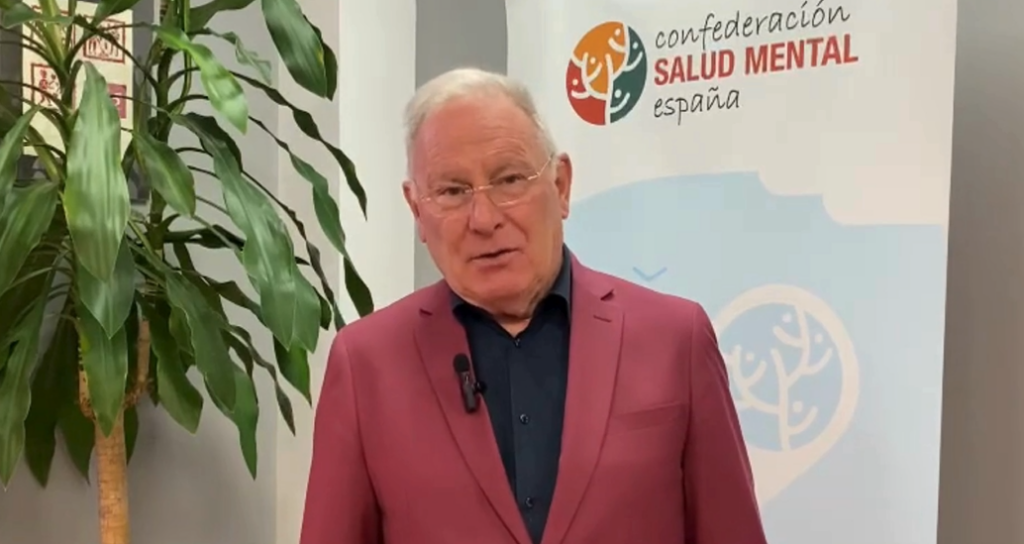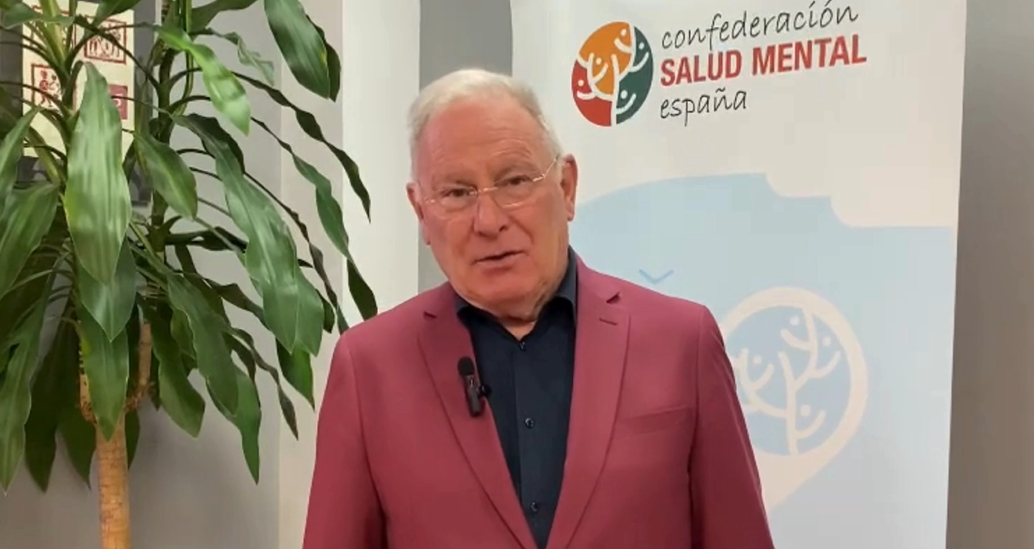For 24 years, the professional life of Nel González Zapico has been focused on achieving a single purpose: transforming the field of mental health. And he has done so by defending a humanistic approach focused on recognize the dignity, inclusion and respect that all people living with mental disorders deserve. But also from the heart of associations, a place that has been in charge of transforming so that it stops being a space for help and becomes a active muscle in the fight for the rights and visibility of a historically marginalized group. After almost 25 years of commitment and dedication and as president of the Spanish Mental Health Confederation, he takes stock of the progress made and analyzes the challenges facing mental health in Spain in this interview for Somos Pacientes.
What led you to become so actively involved in the field of mental health?
I had a personal experience with a close family member. A nephew of mine suffered from a sleep disorder that led to a mental disorder. This coincided with the fact that, after a stage in my life that I considered successful, I went through depression due to a lack of love. From there, I decided to get involved. And I have done it through volunteering and even developing studies as a psychiatry assistant. Mental health became the basis of my life project. And here I am, 24 years later.

In these 24 years, how has mental health changed?
When I started, the landscape was very different. Back then, we were still talking about asylums, places that were never focused on the recovery of people, but on their confinement and total deprivation of freedom. But also in the denial of their dignity. Fortunately, an important step was taken in 1986 with the health reform that began to treat mental disorders in general hospitals, although the stigma continues to exist to this day. The majority of asylums closed, but there are still centers that, with sweeter names and slightly more civilized treatments, continue to deprive people of their freedom, of their right to develop a vital project. It is not that it is denied that it can achieve the maximum possible autonomy, it is simply that it is not contemplated.
Do you think the focus of this area should go towards community care?
Of course. The community approach is essential, as it allows people to receive support in their immediate environment. An example that we are seeing in other areas is with older people, where they are sought to remain in their homes with the necessary support instead of being admitted to residences that, in many cases, are obsolete. The same should happen in mental health, so that people can develop in their environment and not in closed centers. But, although there are successful experiences in this area, they are very isolated cases. There is still much to do in terms of community mental health care.
This community care, together with the human dimension, should be the basis of all mental health action. Of course, it is for us, as we are a welcoming, supportive movement that informs and also guides people. From 340 associations that we have in Spain, we serve almost half a million people a year, but we also take these serious needs and contradictions to the places where legislation is made. We identify and make your honorable accomplices.
You mention that there are contradictions in the way mental health is approached. Which ones are you referring to?
One of the biggest contradictions is that we continue to see mental health problems as something that only affects a few. However, mental health is everyone’s business. For example, the problem of unwanted loneliness seriously affects adolescents, although before we thought it only affected the elderly. These phenomena show us that we must change our perspective and begin to see mental health as an integral part of general well-being.
Do you think we have made progress in naturalizing the conversation about mental health?
We have moved forward. More and more young people realize that mental health is a right and must be guaranteed. But we still have a way to go: there is still stigma and a lack of emotional education. This should be worked on from early childhood education. At the Spanish Mental Health Confederation we work to promote mental health, which is essential. We have educational programs such as “Discover”, which seek to help young people learn more about mental health and prevent risks. We also advocate that emotional education be implemented from the early stages of school, because managing our emotions is key to facing life with adequate tools.
You talk about mental health promotion. How important is this question?
I’ll give you the answer with one fact: mental illness costs 62,000 million euros of GDP in Spain alone, 4% of GDP. Therefore, promoting is not spending on mental health, it is investing in future health, it is saving for the State coffers, it is gaining in well-being and respect for rights. And the first step to promoting is none other than talking about mental health. And we are achieving this.
What resources do you consider necessary to improve mental health in Spain?
An effective intervention is necessary in the educational field to promote emotional management from childhood in an effective and serious way. Furthermore, I ask for more financial resources. The General State Budget Law is the one that has to provide the economic resources so that people’s mental health and well-being are adequately attended to as a right. And that means having decent places, not slobs, for people. And, in terms of human resources, it would be necessary to have professionals from all specialties who can serve people throughout their life journey. From psychiatrists to psychologists, educators and social workers. It is also crucial to strengthen nursing, which plays a fundamental role in providing direct care to people.
The dignity of the person is implicitly related to humanization. What weight would this issue have in the approach to mental health?
It is key to have resources for the humanization of treatment, human contact, and the dignity of people. Humanization is not only about listening or having a good heart, but about respecting people’s rights. It is essential to remember that, for each person, their mental health is their life and their right, and that must be rigorously respected. Without that respect for human dignity, we are losing the battle before we begin. And I would like people to know that not only are there health and social resources, there are also civil society organizations that can offer guidance and support. We can all do something for our neighbors, co-workers or friends. It’s about networking, talking and listening, supporting each other in our daily lives. That is key to good mental health.
